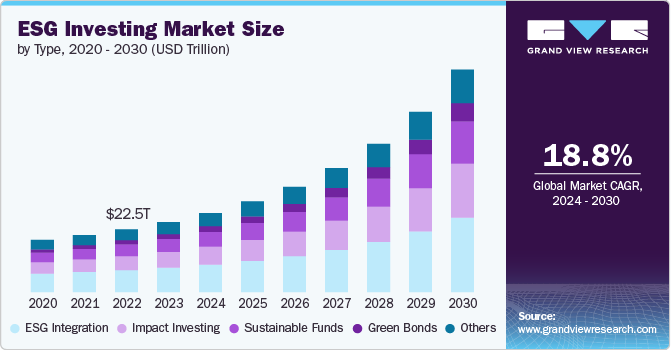ESG Strategies: Responsible Business in the Future

In today’s dynamic business world, the importance of ESG strategies is no longer an option but an obligation. The companies that have already begun the journey of inculcating the principles of Environmental, Social, and Governance are leading the way to a sustainable, equitable, thriving world. Whether you are an emerging entrepreneur or an experienced CEO, this guide will explain to you why the importance of ESG strategies is your ultimate playbook for success.
Why ESG Strategies Are a Game-Changer

Ever wondered why some companies stand out amongst others? Indeed, this is because such companies have instituted ESG strategies. By doing so, anchoring one’s business on aspects of sustainability, social equity, and governance excellence can:
- Moreover, build trust in the minds of customers who give importance to ethical practices.
- Furthermore, attract a class of leading investors who consider sustainability.
- Stay ahead of regulatory trends while minimizing risks.
ESG strategies are just the golden ticket not only toward compliance but toward carving out a legacy for your brand. Excited? Let’s delve into it further.
Key Pillars of ESG Strategies

1. Environmental: Making Green Choices That Matter
Environmental initiatives are at the core of ESG strategies. The reduction of emissions, resource conservation, and renewable energy transition is not just a catchphrase but rather a transformative action.
- Tesla, a shining example, is fully committed to a zero-emission future. In addition, the company is advancing electric vehicle technology while promoting clean energy. As a result, it sets a strong precedent for others to follow in building a sustainable future
- Pro tip: In addition, even paperless offices and energy-efficient lighting can make a significant difference. As a result, these small changes contribute greatly to reducing environmental impact.
Ready to go green? It’s easier than you think!
2. Social: People-First Practices
Here’s a secret: In fact, the most successful companies in today’s world care as much about people as they do about profit. Moreover, from encouraging diversity to taking care of the well-being of their employees, the ‘S’ in ESG strategies is all about connection.
- Bonus points, of course, go to businesses that engage with local communities. In addition, such involvement fosters stronger connections and a positive impact.
- Actionable tip: To start, develop inclusive teams and celebrate diverse voices! In doing so, you foster a more collaborative and innovative environment.
Social responsibility is not a box you tick but rather the heartbeat that makes your story a success. This will help you–>HERE
3. Governance: The Bedrock of Integrity
Governance is not the most glamorous area, but, boy, is it important! Good governance in ESG strategies means that your company will be operating in a transparent manner that is ethical and responsible.
- Case in point: For example, Microsoft’s roadmap to carbon negativity by 2030 highlights their commitment to sustainability.
- Furthermore, if you want a glow-up of governance, institute regular audits and maintain a code of ethics.
Governance would be your compass to keep your business in the right direction.
How ESG Strategies Power Long-Term Growth

Still not convinced? Let’s talk numbers: companies with strong ESG strategies tend to outperform their peers, as well as relate well with their stakeholders on financial metrics. Plus, they’re ready for the oncoming future.
- Case in point: For example, Microsoft’s roadmap to carbon negativity by 2030 highlights their commitment to sustainability. Furthermore, if you want a glow-up of governance, institute regular audits and maintain a code of ethics.
- Trend alert: Indeed, young consumers are moving toward brands that reflect their values. Consequently, companies that align with these values are gaining more traction.
Don’t lag behind; get on the wave of ESG and future-proof your business.
Getting Started on Your ESG Journey

Here’s your text with added transition words:
- Assess: First, appraise your current practices.
- Strategy/Plan: Next, clearly define and quantify the goals of your ESG strategy.
- Act: Then, make changes, ranging from greening initiatives to social impact programs.
- Communicate: Finally, communicate to the world what you are doing through your ESG strategies.
Remember, every step counts. Start small, think big, and watch your impact grow.
The Ripple Effect of ESG Strategies
When you adopt ESG strategies, you’re not just changing your company-you’re creating a ripple effect. Your customers will feel it, and so will your employees. Likewise, your stakeholders will feel it. The planet will feel it.
Want to stand out as a leader? Then it’s time to hang in there with ESG strategies leading from the front for a better tomorrow.
FAQ – Frequently Asked Questions
1. What does ESG mean for a business?
It stands for Environmental, Social, and Governance—three pillars that, together, guide responsible and sustainable business practices. Therefore, adopting ESG principles can help businesses achieve long-term success while contributing to a better world.
2. How can a company get started with sustainability?
Begin by evaluating current practices. Then, set clear goals and, as a priority, focus on actions like reducing waste or improving workplace diversity.
3. Why is governance so critical in today’s business landscape?
Good governance, as a result, builds trust and ensures ethical practices. Furthermore, it helps businesses avoid risks and maintain long-term success.
4. Does adopting these principles lead to better financial performance?
Yes, in fact, companies that prioritize sustainable and ethical practices often see stronger investor confidence. As a result, they also experience improved profitability.



